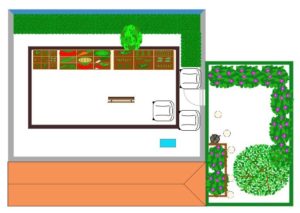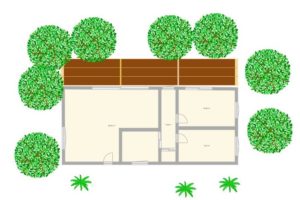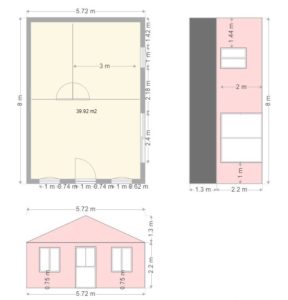I will tell you a little story.
My neighbors had long wanted to have a cellar to store their collection of fine wines. When they decided to build their house, they asked the architect to design a cellar with the plan of the house. And then their house was completed, they moved in, and they stored their bottles of wine in the cellar. And then one day they went on vacation for a week. And it rained a lot in the area where their house is. Back from vacation, they found their cellar completely filled with water. And the bottles had all lost their label.
All this to tell you that we do not build a cellar without some precautions:
- First of all, do you want a buried cellar or cellar with access to the outside?
- Is there water in the soil?
- What is the nature of the soil (clay that prevents water from flowing, or sandstone, sand, limestone)?
- Should we drain all around the cellar to eliminate water?
- Can drainage be connected to the water flow system in the city?
- Is there a stream like a stream or a river to drain the drainage water?
- Is the ground of the house sloping to let the water drain?
- Is the land in a bowl?
- Is your land in a flood zone (normally, no, but in practice it is possible)?
There are several types of materials to build the walls and the floor of your cellar. But if you need to insulate your cellar against rising water, do not forget that it is much more efficient to insulate your cellar from the outside. Do it when the house is being built. Once the house is built, it will be impossible to do or very expensive.
More:






